Business
We didn’t increase petrol price, marketers did –FG
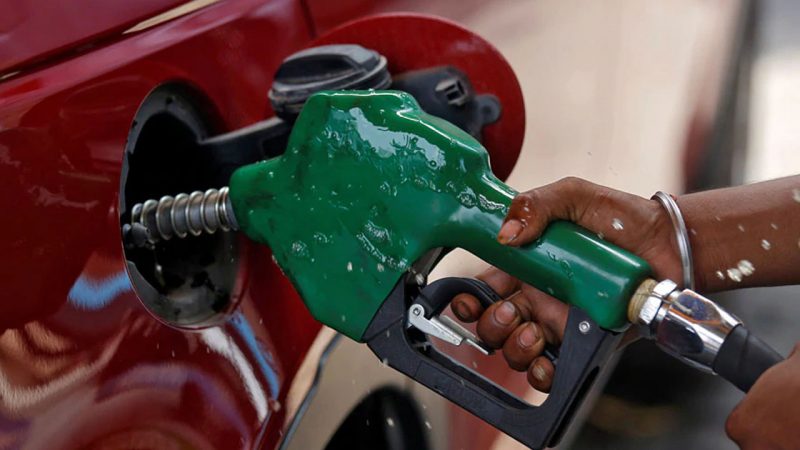
The Federal Government on Monday insisted that it had not raised the pump price of Premium Motor Spirit, popularly called petrol, above the regulated cost of N165/litre.
It said the hike in the cost of the commodity, currently between N175/litre and N230/litre, depending on the location of purchase, was done by oil marketers. The government, however, could not explain why it was not enforcing the approved price.
Oil marketers across the country recently raised the price of petrol above the approved N165/litre rate without any official approval by the government. This was despite the fact that the cost of commodity was still being regulated.
The marketers had argued that the N165/litre approved price was not sustainable and was contributory to the scarcity of petrol in many locations nationwide.
They eventually hiked the pump price of petrol and had maintained the price increase for several weeks running without any resistance by the government.
Speaking on the sidelines of the stakeholders’ consultation forum on Midstream and Downstream Petroleum Regulations organised by the Nigerian Midstream and Downstream Petroleum Regulatory Authority in Abuja, the Minister of State for Petroleum Resources, Chief Timipre Sylva, insisted the government had not raised the price of PMS.
Asked to comment on the disparity in the pump prices of petrol and why the government had not waded into the matter, the minister said, “Well, I can tell you authoritatively that we have not deregulated.
“The government is still subsidising, if there are increases in the price it is not from the government, it is probably from the marketers.
READ ALSO:
- Most lawmakers backed Buhari’s planned impeachment – APC Senator
- Dollar Remittance: Presidency Wades Into CBN, NNPC ‘Feud’
- PDP Crisis: Wike Lists Conditions For Ceasefire
“But, of course, I will talk to the NMDPRA’s chief executive to ensure that they actually regulate the prices. But this is not from the government because we have not deregulated.”
Probed further to explain why no action had been taken against the marketers and why there had been no monitoring exercise to enforce the government approved price, Sylva replied, “Well, I don’t know about monitoring exercise.
“But I know that the authority is fully on their job and the queues will be dissipated very soon.”
On the essence of the forum, the Chief Executive, NMDPRA, Farouk Ahmed, said the programme was in accordance with the demands of the Petroleum Industry Act to allow stakeholders participate in the making of regulations which impact on them.
He said, “Section 216 of the PIA mandates the authority to ‘consult with stakeholders prior to finalising any regulations or amendments to regulations’.
“However, we do not consider this an obligation or box-ticking exercise as continuous engagement with our stakeholders to enable their business is at the core of our regulatory philosophy.”
Ahmed said the regulator had so far published and received significant feedback on the 10 regulations to be considered, as he outlined the pm to include the Petroleum (Transportation and Shipment) Regulations; Assignment and Transfer of Licence and Permit Regulations; and Midstream and Downstream Petroleum (Operations) Regulations.
Others include the Petroleum Pipeline Regulations; Gas Pricing Domestic Demand and Delivery Regulations; Natural Gas Pipeline Tariff Regulations; and Midstream and Downstream Decommissioning and Abandonment Regulations.
He named the remaining to include the Environmental Regulations for Midstream and Downstream Operations; Midstream and Downstream Gas Infrastructure Fund Regulations; and Environmental Remediation Funds Regulations.
Ahmed assured industry stakeholders that their inputs as regards the regulations during the forum, would be taken seriously, adding that the aim was to grow the Nigerian oil sector.
Punch
Business
Air Peace slashes Nigeria-London fare by N600,000
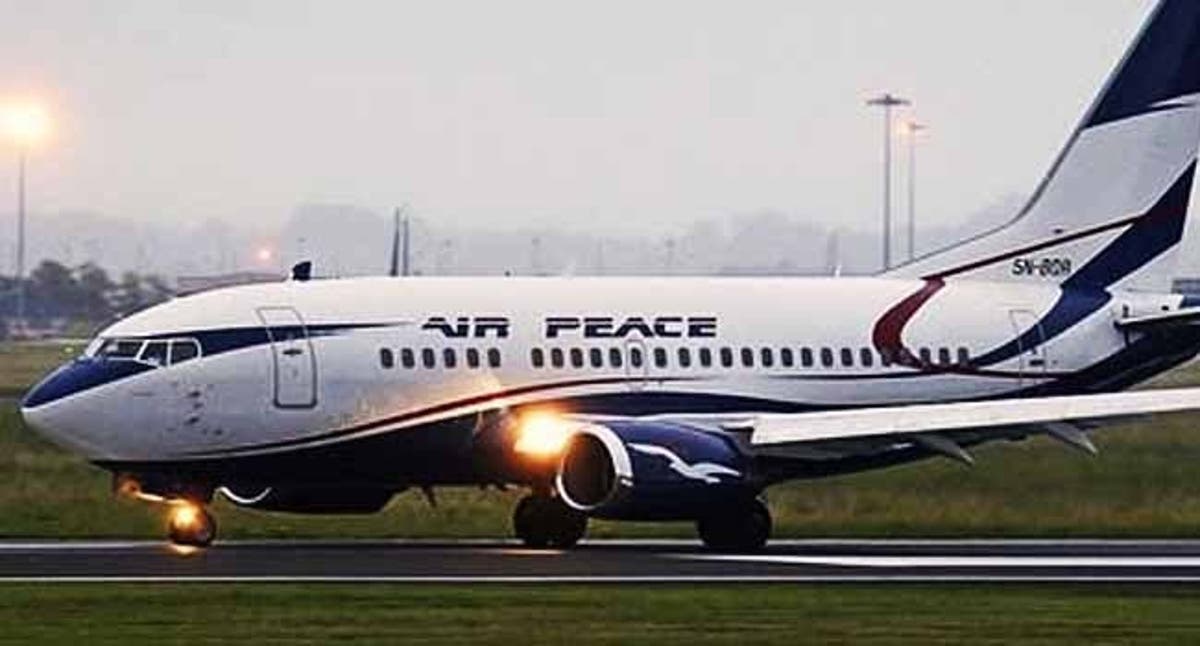
Air Peace slashes Nigeria-London fare by N600,000
Air Peace has announced a ₦600,000 reduction in its Nigeria-London airfare for all travelers flying from Nigeria.
In a statement released on Wednesday in Lagos, the airline’s Head of Corporate Communications, Dr. Ejike Ndiulo, stated that the discount is part of Air Peace’s latest promo offer.
Passengers departing from any Nigerian city to London can enjoy significant savings, along with an exclusive one-free extra luggage allowance.
READ ALSO:
- Tinubu’s state of emergency prevented Fubara from impeachment – AGF
- FG blames Fubara for bombing of oil pipeline
- Over 90% Nigerian land not registered, says Housing minister
According to Ndiulo, the airline rewarded five lucky winners of a raffle draw at the Silverbird Man of the Year Awards held on Sunday in Lagos.
He said that three winners won return economy tickets to any of Air Peace’s domestic destinations, while two won economy return tickets to London.
He said that the Chairman/Chief Executive Officer of Air Peace, Dr Allen Onyema, emphasised the airline’s commitment to driving Nigeria’s socio-economic development through its corporate social responsibility initiatives.
Air Peace slashes Nigeria-London fare by N600,000
Business
Fresh fuel price hike likely as Dangote refinery suspends petrol sale in naira

Fresh fuel price hike likely as Dangote refinery suspends petrol sale in naira
Petroleum products marketers have predicted a potential shake-up in the downstream sector as Dangote Refinery halts the sale of petrol in naira.
The marketers, while expressing shock over the development, said there are genuine concerns over supply chain disruptions and impending price hikes.
Stakeholders fear the ripple effects may deepen economic pressures on businesses and consumers nationwide.
Dangote Refinery, in a statement, said the move was necessary to avoid a mismatch between its sales proceeds and our crude oil purchase obligations, which are currently denominated in US dollars.
“To date, our sales of petroleum products in Naira have exceeded the value of naira-denominated crude we have received. As a result, we must temporarily adjust our sales currency to align with our crude procurement currency.
“Our attention has also been drawn to reports on the internet claiming that we are stopping loading due to an incident of ticketing fraud. This is malicious falsehood. Our systems are robust and we have had no fraud issues.
READ ALSO:
- NLC, TUC urge Tinubu to reverse emergency rule in Rivers
- Rivers administrator to get withheld allocation, says FG
- Tanker explodes on Abuja bridge, many feared dead, 30 vehicles burnt
“We remain committed to serving the Nigerian market efficiently and sustainably. As soon as we receive an allocation of naira-denominated crude cargoes from NNPC, we will promptly resume petroleum product sales in naira. We appreciate your understanding and cooperation during this period”, the company explained.
Commenting on the development, the National President of the Petroleum Products Retail Outlets Owners Association of Nigeria (PETROAN), Mr. Billy Gillis-Harry, expressed rude shock at the development, saying the decision by Dangote will impact petroleum products availability, energy security and pricing.
He said the coming onboard of the Dangote Refinery has been able to stabilise the supply chain while guaranteeing access to product.
However, he warned the suspension of petroleum products into the sldomestic market by Dangote should not be an excuse for importers of products to profiteer by putting the country in a disadvantage condition.
He argued that PETROAN has been at the forefront of canvassing for multiple sources of products for the market, saying the entry of Dangote refinery into the downstream market was received with so much joy.
Gillis-Harry further lamented that the business decision of Dangote to sell his products in dollars has automatically shut out the local market from the business equation because domestic pricing and sales of petroleum products is in naira. On October 1, 2024, the federal government officially announced the commencement of crude oil sale to Dangote Refinery and other local refineries in the local currency.
The move was to reduce the pressure on the foreign reserves and ensure the stability of the local currency.
Fresh fuel price hike likely as Dangote refinery suspends petrol sale in naira
Business
CBN projects continued drop in inflation for six months

CBN projects continued drop in inflation for six months
The Central Bank of Nigeria has projected a gradual drop in inflation rate over the next six months.
It stated this in its newly released report on inflation expectations for February 2025.
The report said businesses and household respondents expected the level of inflation to gradually reduce over the next six months.
The respondents also anticipated lower spending as their expenditure gradually dropped over the next six months.
A further analysis by income distribution indicated that more households earning above N200,000 per month perceived inflation to be moderating, driven by factors such as energy costs, exchange rate, transportation costs, interest rate and insecurity influenced their perception of the inflation rate in the month under review.
The CBN, however said 65.1 per cent of respondents wanted a reduction in interest rate by the financial institution.
The National Bureau of Statistics (NBS) in its Consumer Price Index (CPI) report for March said the inflation rate for February dropped to 23.18% year-on-year in February 2025, reflecting a second consecutive monthly decline from the 24.48% recorded in January.
This figure marks a significant 8.52 percentage point decrease from the 31.70% seen in February 2024, following the adoption of a new CPI rebasing methodology.
-
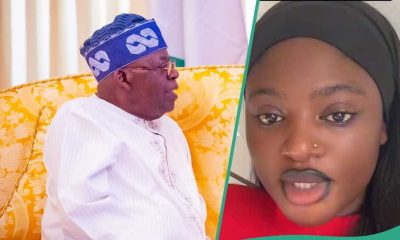
 metro3 days ago
metro3 days agoCorper who criticised Tinubu govt under pressure to apologise, says Sowore
-
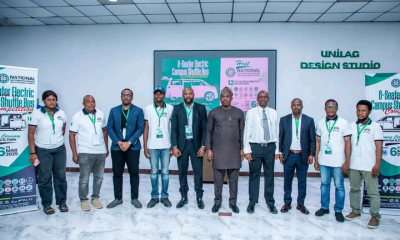
 Auto2 days ago
Auto2 days agoLanre Shittu Motors offers support for EV bus design competition in universities
-

 International1 day ago
International1 day agoUK announces new passport application fees starting April 2025
-
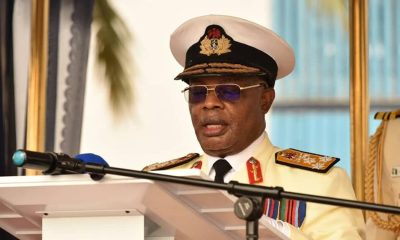
 metro2 days ago
metro2 days agoIbas: 18 things to know about Rivers administrator
-

 News3 days ago
News3 days agoBreaking: Tinubu declares state of emergency in Rivers State
-

 metro2 days ago
metro2 days agoSoldiers take over Rivers Government House after state of emergency declaration
-

 metro3 days ago
metro3 days agoNLC replies Obasanjo, says he can’t rewrite history
-
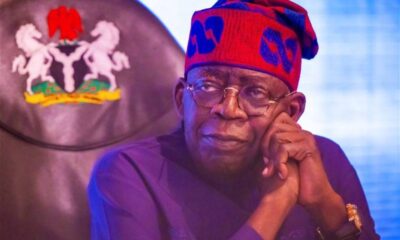
 News3 days ago
News3 days agoTinubu holds emergency meeting with service chiefs











